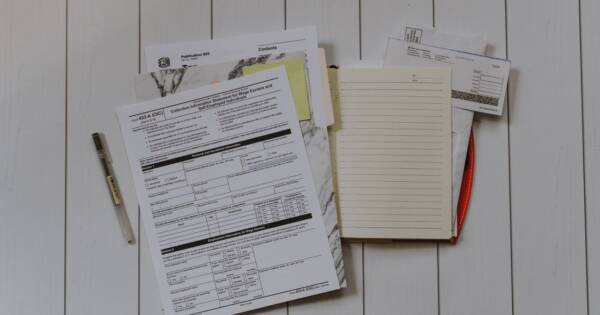Estate tax can be expensive. The top rate is 40%, which means some people are losing almost half of their inheritance to the federal government. Luckily, the vast majority of people (around 99.9%) won’t have an estate big enough to be taxed at all by the feds, much less one that makes the highest bracket. Understand the estate tax, who pays it and some ways you might be able to shelter your assets.
What Is the Federal Estate Tax?
Someone has a right to ensure their property is transferred to appropriate beneficiaries at the time of their death. But it’s a right that could come with a cost in the form of the federal estate tax. This is a tax that’s levied on the value of your estate at the time it transferred ownership post death.
The total value is determined by adding up all your assets, including cash-type items and investments as well as the fair market value of real property. Your liabilities, or debts, are then subtracted from that total, and the resulting number is the value of the estate. This number is important because it determines whether or not a federal estate tax is levied and how much it is.
Who Has to Pay the Federal Estate Tax?
Federal estate taxes are not owed if the total value of the estate is less than $11,580,000 for those passing away in 2020. The IRS updates this figure annually. For example, here’s a look at the threshold for the past 5 years.
2015
2016
2017
2018
2019
While a large, expensive home or land and some decent investments can bump you into estate tax territory, the majority of people come in under these numbers. That’s especially true when you consider allowed deductions, which are discussed below.
Can You Reduce Your Estate Tax Costs?
If you see that the value of your estate is likely to be above the federal tax threshold and you want to protect your assets for beneficiaries or avoid expensive taxes, you do potentially have some options.
Estate Tax Deductions
First, the IRS allows some deductions, which are taken off the value of the estate. That can help bring your number down below the threshold if you’re near it. Deductions include:
- Mortgages and debt – Before the executor of an estate tallies up and determines what the estate tax might be, they first need to use the value in the estate to settle all remaining debts. That means paying off any mortgages on property and covering any other outstanding debts. Estate tax, if relevant, is paid on the total after those deductions.
- Charitable deductions – Some charities qualify as tax deductible. Someone can leave property — either cash or real property such as land, a home, or artwork, to a qualifying charitable organization, and the value of that asset is deducted from the total value of the taxable estate.
- Losses during the administration of the estate – It takes a while for estate matters to be resolved, so there can be a difference in estate value from the time a person dies to the time estate taxes are paid. Some types of losses during this time, such as a loss in investment value, might be a deduction.
- Estate administration expenses – The estate may need to pay for services and goods to support the administration of the estate. Expenses might include filing fees and court costs, charges for copies of documents and even the costs associated with keeping up a property until it can pass fully to the appropriate heirs. Some of these costs may be deductible.
- Marital deduction – You can transfer any amount of value to your spouse at any time without paying taxes, and that includes upon your death. So if you’re simply transferring ownership of estate items to a spouse, the estate tax may not apply.
Set Up a Trust
Some assets can be transferred to your beneficiaries before you pass away. You can do this by placing them in an irrevocable trust, which transfers ownership to someone else while limiting how and when those individuals can access the wealth.
For example, you might put funds in a trust meant to cover the cost of someone’s college expenses, and they can only take from the funds for those approved expenses. Some people also put life insurance policies in a trust to help ensure those assets are protected.
Give Gifts Now
Reduce the amount of value your estate has by doling it out slowly over time. You can give a certain amount to each individual annually without paying a gift tax on the amount. From 2018 through 2020, the amount you can give without being taxed is up to $15,000.
What Is the Deceased Spousal Unused Exclusion?
The DSUE is a rule that allows estate tax exemptions to be portable between spouses. Basically, it means that if one spouse doesn’t use his or her total entitled exemption, the other spouse can use what’s left.
In practice, it works like this:
- A person passed away in 2019 with an estate worth $8,000,000. No federal estate taxes were levied because that’s under the threshold for that year, which was $11,400,000.
- However, the deceased didn’t use $3,400,000 of his or her estate tax exemption amount.
- The surviving spouse gets that exemption plus whatever exemption they quality for in the future. So, if the surviving spouse were to pass away in 2020, they would get the exemption for 2020 ($11,580,000) plus the $3,400,000. That’s a total of $14.98m before the estate will be taxed federally.
Do States Charge Their Own Estate Tax?
Some states have their own estate or inheritance tax. Some follow the federal guideline for estate tax thresholds, and some charge taxes on lesser amounts. So, it’s possible that you could owe state taxes on an estate even if federal taxes aren’t owed.






